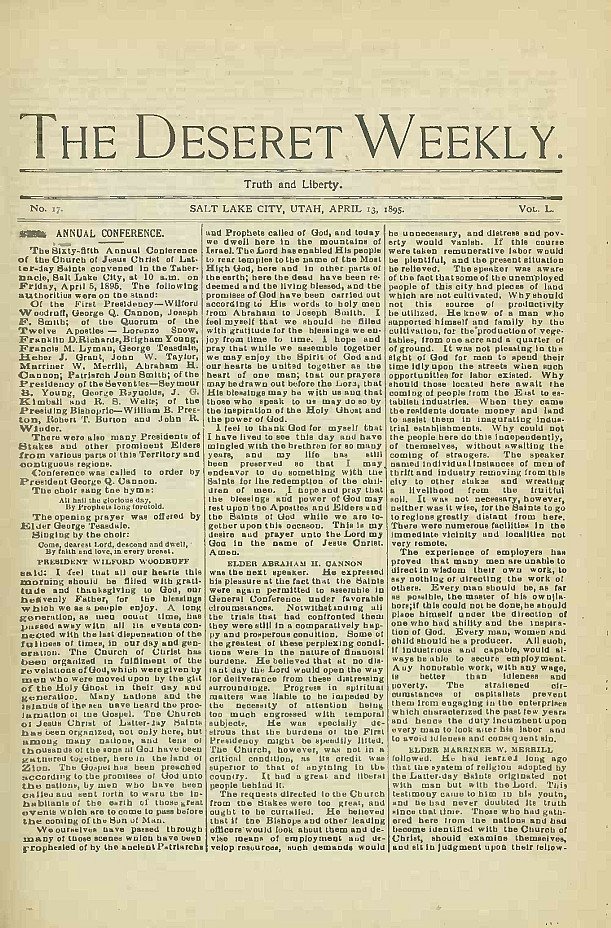
Day in the Life
Journal Entry
April 5, 1895
The 66 Semiannual Conference of the Church of
Jesus Christ of Latter Day Saints met at
the Tabernacle at 10 oclok to day W Woodruff
made a few remarks followed By Abram Cannon
Merrill & Taylor in the forenoon &
G Teasdale & H J Grant & W Woodruff in
the Afternoon And a Priesthood Meeting
Held in the Evening
People
Browse people Wilford Woodruff mentioned on this day in his journal. Click on the person's name to view a short bio and other pages they are mentioned on or click on "View in Family Search" to view their FamilySearch profile.
Places
Browse places mentioned in Wilford Woodruff's journal entry on this day. Click on the place names to view other pages where they are mentioned.
Related Documents
Browse other documents with this same date. These could include pages from Wilford Woodruff's autobiographies, daybooks, letters, histories, and personal papers. Click on the document titles to view the full document.


Events
View selected events in the two months surrounding this date in Wilford Woodruff's life. Click on the dates to jump to that day in Wilford Woodruff's journal.


